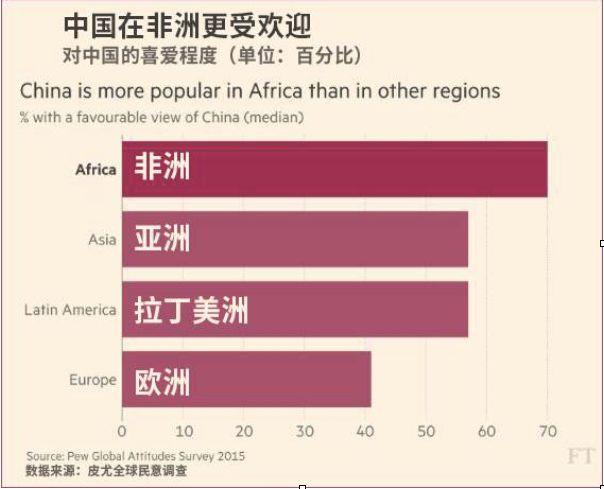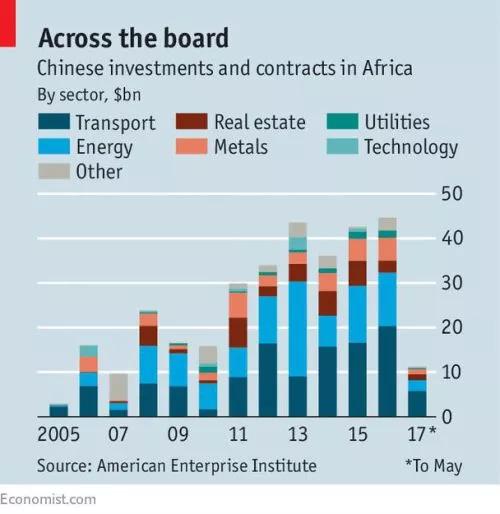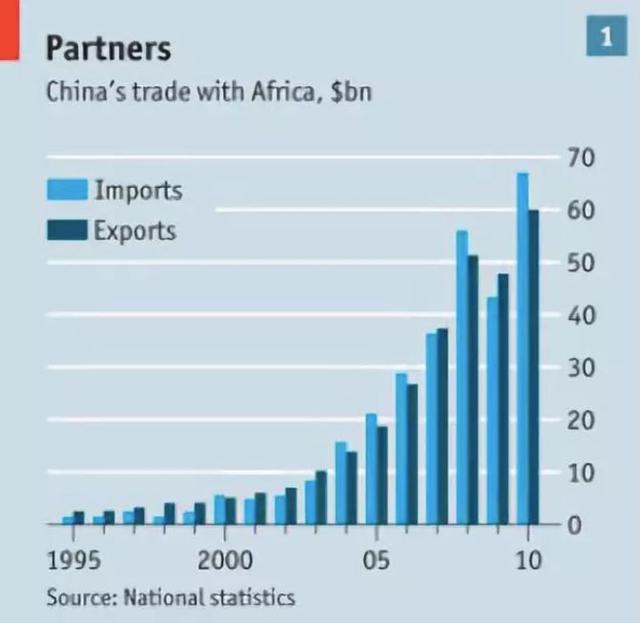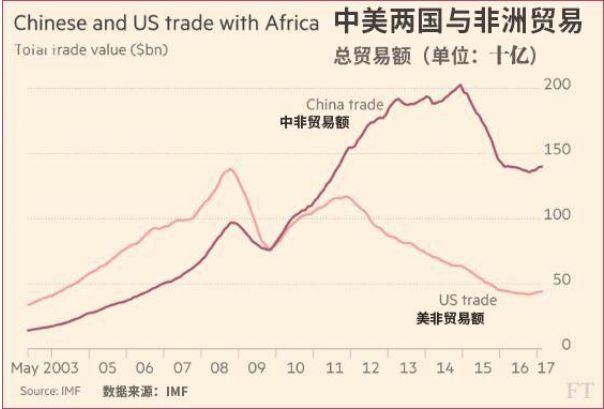This afternoon, the China-Africa Cooperation Forum Beijing Summit opened. This is the largest home diplomacy that China has hosted this year and the most attended by foreign leaders. At the opening ceremony, General Secretary Xi Jinping delivered an important speech, and such a passage caused a strong applause -
"China adheres to sincere friendship and equal treatment in cooperation... Persist in doing 'five no', that is: not interfering with African countries to explore a development path in line with national conditions, not interfering in Africa's internal affairs, not imposing one's will on others, not Adding any political conditions to non-aid assistance does not seek political self-interest in non-investment financing. China hopes that all countries can do this 'five no' when dealing with African affairs."
Why should China’s top leaders highlight these points?
Historical experience
China has always adhered to the Five Principles of Peaceful Coexistence and has earned China a wide reputation and respect in the international arena. In fact, the five "noes" put forward by Xi Jinping today are in line with the spirit of the Five Principles of Peaceful Coexistence. This is also the most fundamental difference between China-Africa cooperation and Western policy toward Africa.
Wang Hongyi, director of the Information Research Office of the Institute of West Asian and African Studies at the Chinese Academy of Social Sciences, told Uncle Island. Historically, in modern times, China has received “aid” and loans from Western powers with various additional conditions. Africa has also suffered greatly. For this reason, China-Africa cooperation has shown a wisdom to escape the historical trap.
Research by Shou Huisheng, a researcher at the National Strategy Institute of Tsinghua University, shows that Western society attaches a lot of conditions to non-aid, applying similar aid programs to African countries with different national conditions, while using rigid values, such as the criticized Washington consensus. The principles of neoliberalism, as well as the “political correctness” of the universal values of the West, are used to guide the flow and use of aid funds. This has led to government spending on people's livelihood in many countries not exceeding the cost of paying off international debt.
In his view, these "fatal aids" of various political conditions have made African countries a target of aid rather than a development subject, obeying Western donors in terms of development direction and operation mode, and losing the autonomy and voice of development. It also stifles the inner dynamics of development.
Therefore, even East York University economics professor Istley has severely criticized Western countries for "international assistance" for Africa after the war. For example, although it is recognized that African children cannot enjoy a dozen or so cents of anti-malarial drugs as a tragedy, the bigger tragedy is that after the West has invested more than 600 billion U.S. dollars in aid to Africa, African children still cannot get more than a dozen. A cent of an anti-malarial drug. In the cover article of The Economist in 2000, Africa was also referred to as the “promising continent”, which was considered “incurable and destined to be barbaric and underdeveloped in the future”.
The reason why China-Africa cooperation is called "mutual benefit" is because in this land, China has just followed the basic laws governing the development of backward countries.

Real investment
Some people in China often ask why China wants to cooperate with Africa.
In Wang Hongyi's view, this is because China and Africa's capacity complementarity is very strong, and Africa's development potential will bring huge market. China has capital, and some production capacity and technology are also over-represented, and it is necessary to find markets and investment opportunities. The demand in Africa is the beginning of industrialization, the need for funds, the need for employment, and the need to get rid of the state economy can only rely on the "digging underground."
As pointed out by the former Xia Kedao, it is necessary to invest in and develop the industry in this land of Africa, which requires a lot of basic facilities. Covering a house still requires leveling the land, laying the pipe network, and doing a good job of roads and supporting facilities. This is especially true for the construction of a long-term industry.
If there is no water, no electricity, no access to a place, even if the technology is advanced and the workers are hardworking, nothing can be created. If local workers do not have technical training, it is impossible to become a suitable labor force that can operate the machine proficiently; if it does not help Africa to improve public health, it is difficult to guarantee normal production and operation.
Take the Export-Import Bank of China as an example. According to the data, since 2006, non-loan loans accounted for one-third of all overseas businesses, including railways, highways, hospitals, housing, etc., and will increase agriculture and energy in the future. Industry support.
Similarly, China-Africa cooperation has quite a lot of “one hit”. For example, Africa has abundant resources, such as crude oil, manganese, copper, etc.; but these resources have not been fully developed for a long time, and they have been squeezed by Western countries at low prices. China's demand for resources need not be said, so the two sides have the basis for cooperation. Wang Hongyi said that China imported more copper and cotton from Africa than domestically; the oilfield project of Chinese enterprises in Africa has greatly helped China's energy security.

China’s basic work is bringing results, and even the West is enjoying the fruits of China’s non-construction. The US "Diplomatic Scholars" website cites the article as an example. In Ethiopia, one of the poorest countries in the world, China Civil Engineering Group built the Awasa Industrial Park. The number one job provider in the industrial park is the United States. Clothing company PVH company.
“Diplomatic Scholars” said: “Without the railways, roads and power stations built by China in various parts of Ethiopia, PVH and other global investors cannot operate their businesses here and create thousands of embarrassing manufacturing. Industry position."
In the Western media's view, when “the Western government almost gave up this continent” and regarded it as “the source of instability, immigration and terrorism”, China saw the opportunity of mutual benefit and win-win situation – China-Africa trade in 2000 The amount is only 10 billion US dollars; last year, the two-way trade volume between China and Africa reached 170 billion US dollars. At the same time, McKinsey's survey showed that more than 1,000 Chinese companies in eight African countries surveyed and found that 89% of these employees are African natives.

Win-win
In fact, between 2000 and 2010, the average economic growth rate of African countries was 5.4%, one of the fastest growing regions in the world. It is estimated that by 2050, Africa’s population and labor force will account for a quarter of the world. The continuous urbanization process and a large number of young people will bring industrialization, consumption growth and economies of scale in the future, all of which will bring greater opportunities for enterprises investing here.
According to Forbes, in Africa, “China’s infrastructure projects generate about $50 billion in revenue a year. For Chinese citizens, this has directly and indirectly become a large number of jobs.” An important frontier in economics and trade."
Africans understand that there has never been a colonial stain in China's diplomatic practice. The biggest difference between China and the West is that it treats Africa equally.
Economically, China needs Africa's resources, fair trade, and also helps Africa to deepen the processing of its product resources. China also uses these resources for reprocessing. For example, Nigeria's oil has been processed into diesel and gasoline by China and re-imported to Nepal. Extend and improve the industrial chain; not only send Chinese manufacturing to Africa, but also help local African manufacturing, help them to turn raw materials into products, and sell products to European and American markets. It is better to teach people to fish than to teach people. In the future, not only will China be seen in the world, but also more “Made in Africa”.

Nigeria’s "Pioneer" said this: "Unlike the West, China is not overbearing. It does not claim that its enemies must be our enemies, nor does it require allies to join the territory to fight for war. By contrast, when Americans and When other countries are fighting, such as the ongoing disputes with Turkey and Iran, the United States insists that other countries either join economic sanctions or are punished. The Chinese tell us that candles will not lose brightness by igniting other candles, but will make the world Brighter."
Kenya’s “National Daily” pointed out more clearly: “China is a valuable partner for Africa. It is trying to break the old “poverty trap” based on the underdeveloped centuries.”
More than 6,500 kilometers of railways, more than 6,000 kilometers of highways, more than 200 schools, more than 80 stadiums, dozens of government offices, parliament buildings and a large number of airports, ports, modernization of African communications, and more than 2,000 peacekeeping fighters Efforts to peace and security and the improvement of public health in Africa in the past few decades... This is the "answer" that China has handed over on this continent. These pragmatic actions are better than a dozen or so programs and slogans.
The foreign media once interviewed a Guinean girl. She said this: "We have heard that Westerners have spent billions of dollars building roads, but they have never been built; but if you see two Chinese working, You will know that the road will be built in two months."
With the continues investment in africa, we do believe that the demand for construction materials such as machines, steel, stainless steel, ceramic, furnitures, ect., will continue to boost,























